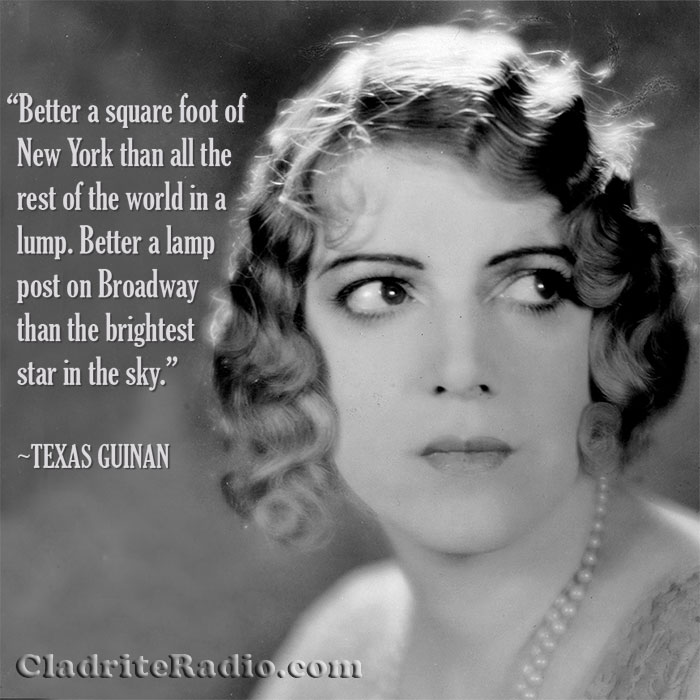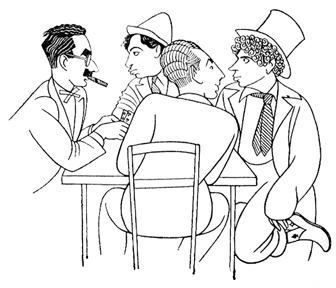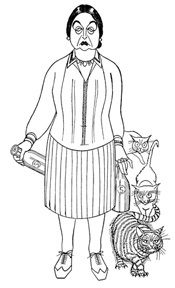Actress and Queen of the Nightclubs Texas Guinan was born Mary Louise Cecilia Guinan 133 years ago today in Waco, Texas. Here are 10 TG Did-You-Knows:
- Guinan was one of seven children. Her parents were Irish-Canadian immigrants. She attended parochial school at a Waco convent.
- When Guinan was 16, her parents moved the family to Denver, Colorado. There she began to appear in amateur stage productions before marrying newspaper cartoonist John Moynahan at age 20. The pair moved to Chicago, where she studied music. She eventually divorced Moynahan and began to perform in vaudeville as a singer.
- Guinan’s singing was reportedly no great shakes, but she had lots of pep and she soon found that she improved her prospects as a performer by regaling the audience with (perhaps exaggerated) tales of her “Old West” upbringing.
- In 1906, Guinan moved to New York City, where she worked as a chorus girl before finding additional work in vaudeville and on the New York stage.
- In 1917, Guinan made her movie debut and soon was a regular in western pictures. She is said to have been the first movie cowgirl (her nickname was The Queen of the West). Guinan would go on to appear in more than 50 features and shorts before she died in 1933.
- With the passage of the 18th Amendment, Guinan became active in the speakeasy industry, serving as hostess and emcee for a long string of illicit (but very popular) nightspots. Her outsized, sassy personality and her skill at evading justice, despite her many arrests for operating a speakeasy, made her a legendary figure in Prohibition-era NYC.
- Guinan’s speakeasies featured an abundance of scantily clad fan dancers and showgirls, but her penchant for pulling the legs of the rich and famous served her just as well. “Hello, suckers!” became her standard exclamation for greeting customers. Her well-to-do patrons she referred to as her “butter-and-egg men” and she coined the familiar phrase “Give the little ladies a big hand” while serving as emcee.
- Texas Guinan’s nightclubs were often backed by gangster Larry Fay and such legendary bad guys as Arnold Rothstein, Owney Madden and Dutch Schultz frequented her establishments—alongside relatively “good guys” such as George Gershwin, Walter Chrysler, Pola Negri, Mae West, Al Jolson, Gloria Swanson, John Gilbert, Clara Bow, Irving Berlin, John Barrymore and Rudolph Valentino.
- Ruby Keeler and George Raft both got their starts in show business as dancers as Guinan’s clubs, and Walter Winchell acknowledged that the inside access Guinan gave him to Broadway’s cornucopia of colorful characters helped launch his career as a gossip columnist.
- Guinan died of amoebic dysentery in 1933, one month before Prohibition was repealed. She was just 49. Bandleader Paul Whiteman and writer Heywood Broun were among her pallbearers.
Happy birthday, Texas Guinan, wherever you may be!



